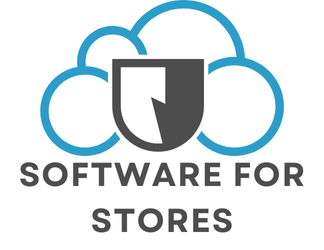Overview of Data Encryption in Hybrid Cloud Environments
Data encryption plays a crucial role in hybrid cloud security, safeguarding sensitive information across both private and public sectors of the cloud. This process converts data into a coded form, ensuring unauthorised users cannot easily access or decipher it. In the context of a hybrid cloud, encryption offers robust data protection by maintaining consistent security measures across varied environments.
Hybrid cloud architecture combines on-premises private cloud resources with public cloud services, creating a unified and flexible infrastructure. This model allows businesses to leverage the scalability and cost-effectiveness of public clouds while maintaining control over critical assets in a private cloud.
Also to read : Maximizing AI Model Performance: Effective Strategies for Training with Limited Hardware Resources
Encrypting data in such environments brings numerous benefits, including:
- Enhanced security: By encrypting data at rest and in transit, businesses can significantly reduce the risk of breaches.
- Compliance: Adhering to regulations and standards becomes more manageable, ensuring data protection laws are respected.
- Increased trust: Encryption assures clients and stakeholders of the company’s commitment to safeguarding their data.
Therefore, understanding and implementing data encryption in hybrid cloud environments isn’t just about protecting information—it’s a vital strategy for achieving comprehensive data protection and enhancing overall security posture.
Also to see : Revolutionizing Remote Patient Monitoring: The Role of AI-Powered Tools in Transforming Healthcare
Effective Strategies for Enhancing Data Encryption
Enhancing data encryption requires a multifaceted approach that combines best practices, robust security strategies, and adaptable hybrid cloud solutions.
Implementing Strong Encryption Protocols
When selecting encryption methods, it’s crucial to understand industry-standard protocols. AES (Advanced Encryption Standard) and RSA (Rivest-Shamir-Adleman) remain prominent, each serving specific use cases. AES is symmetric, suitable for fast data encryption needs, while RSA, being asymmetric, is ideal for secure data exchange. Selecting the right protocol depends on the specific encryption scenario, weighing factors like performance, security level, and computational requirements.
Utilizing Encryption Tools and Technologies
Successful data encryption in hybrid clouds hinges on the right tools. Solutions like Microsoft Azure and AWS offer built-in encryption features that integrate seamlessly with existing infrastructure. These tools simplify the adoption of data security strategies by providing customizable encryption modules. Real-world case studies highlight how organizations effectively leverage these technologies to secure sensitive information, often witnessing enhanced protection and streamlined operations.
Data Segmentation and Key Management
Data segmentation is pivotal to optimised encryption best practices. By dividing data into secure segments, organizations can enhance control and simplify encryption management. Effective key management is equally crucial, with hardware security modules (HSM) playing a vital role in safeguarding encryption keys, thus ensuring data integrity and privacy.
Addressing Challenges in Data Encryption
Tackling encryption challenges is essential to maintaining data integrity and security within our increasingly digital world. Common encryption challenges include compliance with evolving security standards, managing encryption keys, and ensuring scalability. Encrypting data can also impact system performance, potentially leading to slower data processing and reduced system efficiency. This trade-off requires careful consideration and planning to balance security issues with operational effectiveness.
Hybrid cloud vulnerabilities present specific challenges in encryption. Data transmitted across different environments can be exposed to interception and unauthorized access. Ensuring end-to-end encryption and regularly updating encryption protocols are critical strategies to mitigate these vulnerabilities.
To overcome encryption-related issues, organizations can employ several approaches:
- Implementing robust encryption algorithms that adapt to emerging threats.
- Utilizing dedicated hardware to offload encryption tasks, thereby minimizing performance impact.
- Adopting comprehensive encryption key management strategies to safeguard sensitive information.
Proactive monitoring and timely updates are also vital in addressing security issues. By embracing these strategies and being aware of encryption challenges, businesses can enhance their data protection frameworks. Such foresight not only strengthens an organization’s overall security posture but also boosts its resilience against evolving threats.
Regulatory Considerations for Data Encryption
Understanding and adhering to compliance standards is critical for effectively managing data encryption protocols. Various data protection regulations require organisations to deploy specific encryption strategies to protect sensitive information.
Overview of Relevant Regulations
Several key regulations influence encryption practices, such as the General Data Protection Regulation (GDPR), the Health Insurance Portability and Accountability Act (HIPAA), and the California Consumer Privacy Act (CCPA). These frameworks set out stringent security standards that organisations must meet to secure personal and health data. Non-compliance can result in severe penalties, including hefty fines and reputational damage.
Aligning Encryption Strategies with Regulatory Standards
To ensure ongoing compliance with these regulations, mapping encryption techniques to specific requirements is essential. Organisations should regularly audit and assess their encryption methods to ensure they align with current regulatory standards. Keeping detailed documentation and reporting to regulatory bodies can demonstrate adherence to compliance protocols. Regular updates to encryption policies reflect changes in regulations, ensuring that organisations maintain their commitment to protecting consumer data effectively.
By closely following these practices, businesses not only stay compliant but also enhance their data security posture, building trust with customers and stakeholders alike.
Case Studies: Successful Data Encryption in Hybrid Cloud
In today’s technologically advanced world, organisations across various industries are increasingly leveraging hybrid cloud solutions for their data needs. Data Encryption Case Studies offer invaluable insights into how real-world applications have benefited from these technologies. A notable example can be seen in the financial sector, where banks have implemented encryption strategies to protect sensitive customer information across hybrid cloud environments. By employing robust algorithms, these institutions ensure data privacy and compliance with regulatory mandates.
Real-world Applications of hybrid cloud encryption extend to other industries as well. In healthcare, patient data is highly sensitive and requires stringent protection. Leading hospitals have adopted encryption protocols to safeguard electronic health records, enhancing the security of patient information while allowing seamless access for authorised personnel.
Exploring Hybrid Cloud Success Stories, we find valuable lessons on the effective incorporation of encryption. Organisations emphasise the importance of choosing the right encryption tools tailored to their specific needs. Additionally, continuous monitoring and updates are crucial to maintaining security and addressing emerging threats.
- Industry-specific Approaches: Different industries adapt encryption strategies based on unique requirements.
- Key Learnings: Customised encryption tools and ongoing vigilance lead to successful data protection.
These case studies demonstrate the transformative impact and critical importance of encryption within hybrid cloud frameworks.











